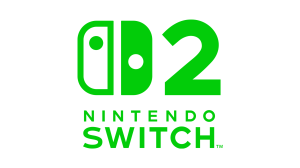Victoria Alonso, Marvel Studios‘ executive vice president of production, hopes to see underrepresented communities flourish in the Marvel Cinematic Universe as its slate — and its characters — continue to expand and grow more diverse.
Videos by ComicBook.com
“You don’t get to have this kind of success if the entire world doesn’t see your product. So we are determined to have everyone of those people represented in our films, in some way, at some point in time,” Alonso told the BBC.
“Now, we only make two or three movies a year, so it’s difficult to have every single one — but it is definitely one of the things that we have in our minds all the time.”
The Argentina-born executive producer has overseen the entirety of the MCU, save for 2008’s The Incredible Hulk, helping launch such forward-thinking Marvel Comics characters like Black Panther (Chadwick Boseman), Agent Peggy Carter (Hayley Atwell), Falcon (Anthony Mackie) and soon Captain Marvel (Brie Larson) on the big screen.
Asked which communities Marvel Studios has yet to represent, Alonso answered more attention could be paid to the Latin, Asian, and LGBTQ communities, often marginalized in mainstream media.
“I think we haven’t represented the Latin community, in general. I think that’s something we have to do better. I’m Latin, I can tell you that I’m longing for that. The gay community has not been represented whatsoever. I’m gay, so I can tell you that I would long for that,” she said.
“I think we haven’t represented the Asian community well, I think we’ve had some representation, but it’s minimal — and we would like to represent that, in a big way.”
Marvel has found success with strong female characters — The Avengers‘ Black Widow (Scarlett Johansson), Guardians of the Galaxy‘s Gamora (Zoe Saldana), Thor: Ragnarok‘s Valkyrie (Tessa Thompson) and Ant-Man and the Wasp‘s Hope van Dyne (Evangeline Lilly) among them — and fan-favorite POC characters like Ant-Man‘s Luis (Michael Peña), Spider-Man‘s Ned (Jacob Batalon) and Michelle (Zendaya), and the predominantly black cast of Black Panther, including breakouts Shuri (Letitia Wright), M’Baku (Winston Duke), and Okoye (Danai Gurira).
The groundbreaking success of Black Panther proves audiences are longing for more diverse representation on the big screen — the Ryan Coogler-directed blockbuster earned over $1.3 billion worldwide, and was just the third film in history to bypass $700 million at the domestic box office — characterized by Alonso as a nice start.
“I think just because we do one movie that’s called Black Panther and all those actors are represented, doesn’t mean that we need to stop there. I think that we should have Black Panther 2 and 3,” Alonso said.
“I think that every team film that we do has to have a very diverse cast, and that’s something that we are definitely working on trying to achieve.”
Marvel Studios president Kevin Feige said previously the uncontested success of Black Panther emboldened the Disney-owned studio to explore more diverse stories, including heroes of color offered in Marvel Comics like breakouts Kamala Khan, America Chavez and Miles Morales.
“Absolutely, yes,” Feige said when asked if audiences can expect to see more superheroes of color.
“It was the path that we were heading in any way because they’re great stories from the comics. The success of Black Panther, like a lot of things with the history of Marvel Studios, has just emboldened us to just continue doing that and to continue heading forward with that.”
Feige has similarly gone on record promising the inclusion of LGBTQ+ characters, “a heck of a lot” more female directors, and both “new heroes, new types of heroes” from Avengers 4 and beyond.
Captain Marvel opens March 8, followed by Avengers 4 May 3 and Spider-Man: Far From Home July 5, 2019.








